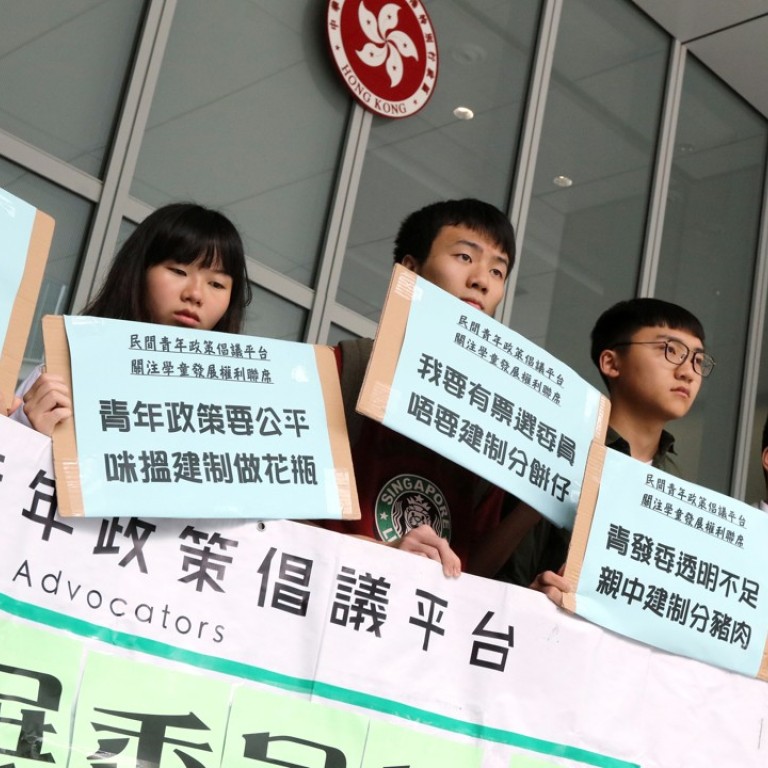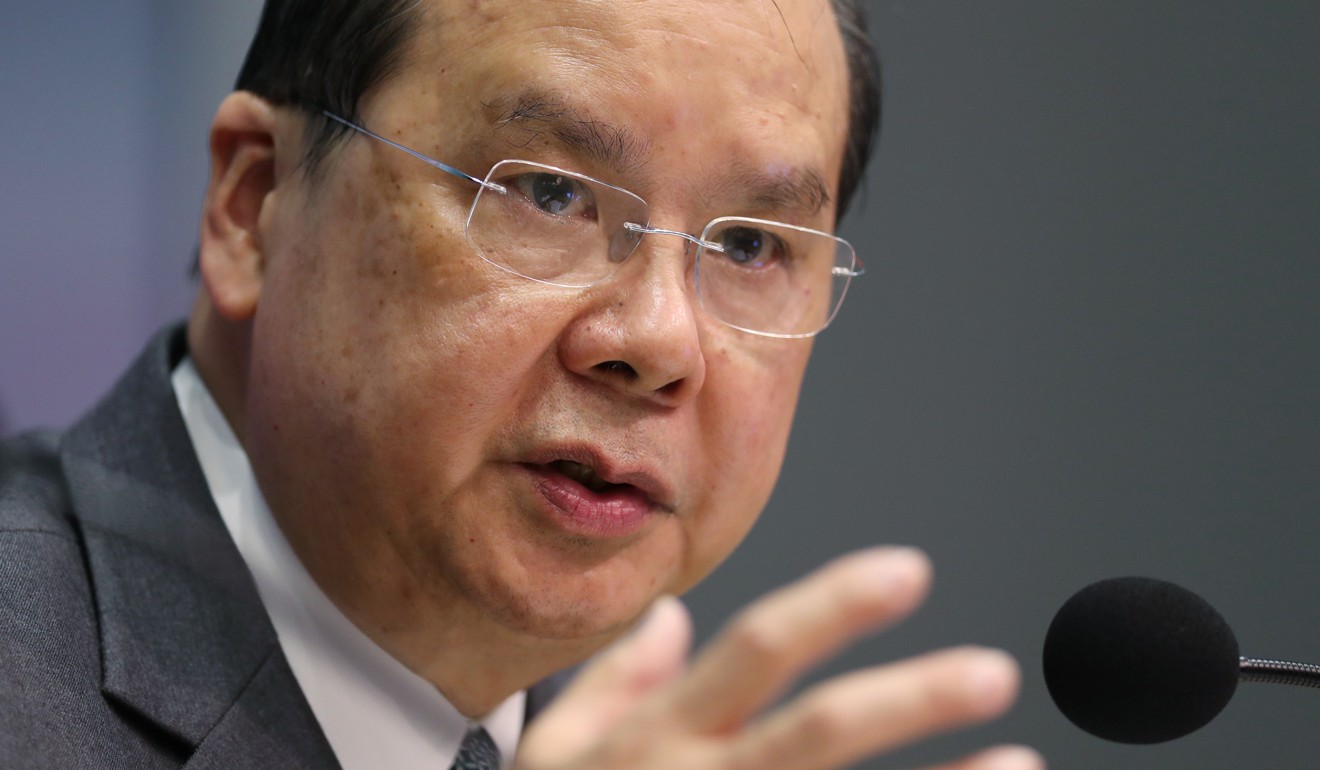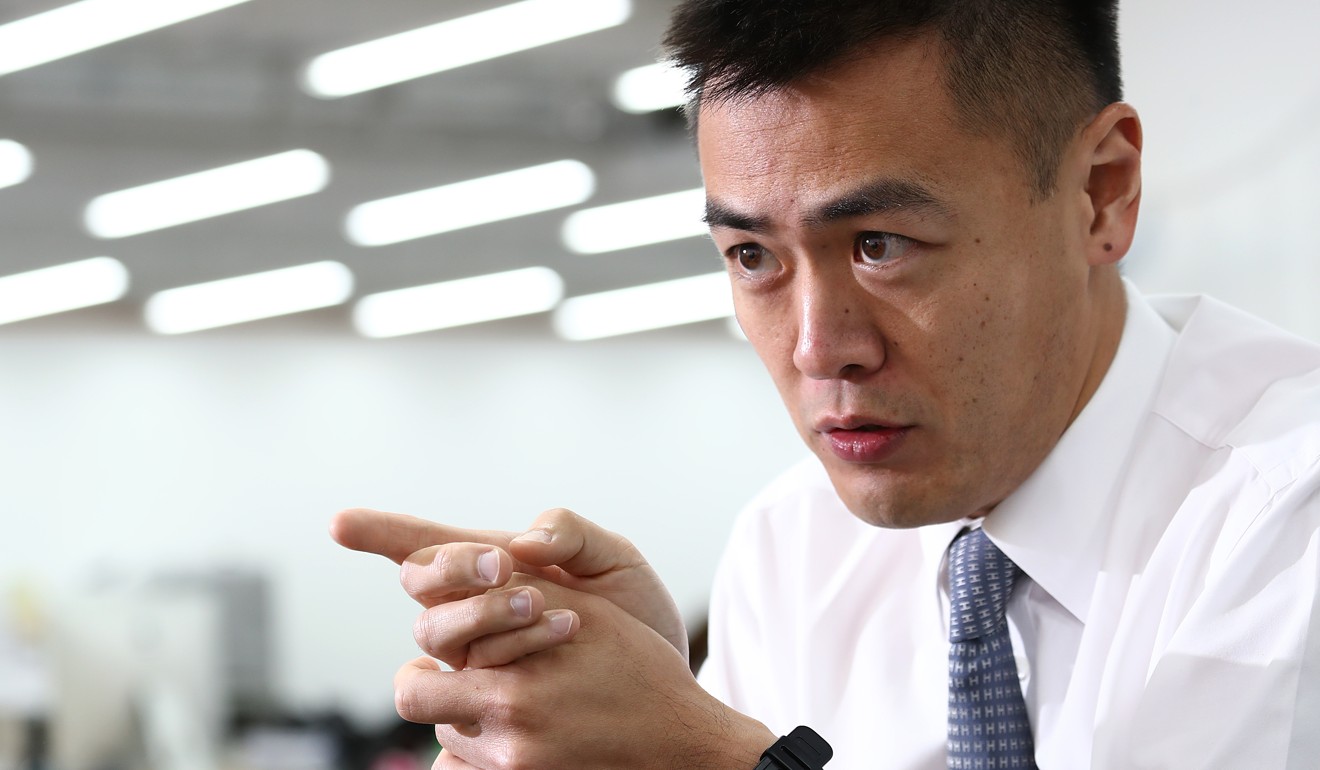
Hong Kong localism off the agenda for new youth panel
Commission chaired by chief secretary to focus instead on housing, job prospects and education, according to members present at its first meeting
The rise of localism in Hong Kong has been left off the list of priorities for a new high-level body advising the government on youth policies, according to people at its first meeting, held behind closed doors on Tuesday.
The Youth Development Commission, chaired by the government’s No 2 official Chief Secretary Matthew Cheung Kin-chung, agreed to set its sights on addressing issues around youth education, career prospects and home ownership. That consensus was said to have been reached after discussion between members during the 2½-hour meeting.
One person present, speaking on condition of anonymity because of the commission’s confidentiality rules, said some members raised the issue of localism, while others wanted more transparency around the commission’s meetings.
“The discussion was free and honest. The topic of localism was briefly touched upon. But the general view among members seemed to be that we should first focus on policies to address difficulties faced by young people on education, jobs and home ownership,” the member said after the meeting.

Another member, Jeremy Young Chit-on, a district councillor for the Liberal Party, said the members had a very “open-minded and positive discussion”. “Almost everyone gave their own views on youth policies and discussed work priorities,” Young said, without going into details.
“Cheung was attentive and looked sincere while listening to our views,” another member said. “I do hope the government can come up with something good at the end of the day.”
The topic of localism was briefly touched upon. But the general view among members seemed to be that we should first focus on policies to address difficulties faced by young people on education, jobs and home ownership
In a statement issued on Tuesday night, Cheung said the members had provided valuable opinions that enabled the commission to understand better the views of young people.
The government has in recent years raised concerns over the rise in the city of localism, a stance characterised by an antipathy towards mainland China, demands for Hong Kong’s autonomy and veneration of Hong Kong and Cantonese culture. Recent years have brought arguments on school and university campuses over calls for Hong Kong’s independence.
Chief Executive Carrie Lam Cheng Yuet-ngor announced the establishment of the commission in her policy address last year. The government said it would upgrade the former Commission on Youth to enable “holistic and more effective examination” of issues of concern to young people.
The commission’s vice-chairman is young businessman Lau Ming-wai, who was chairman of the former commission. There are 34 non-official and eight ex officio members. More than half of the non-official members are aged 35 or younger.
Three of the members, including young activist Cheng Hon-wun, 18, were appointed through the so-called self-recommendation scheme for youth, an initiative by Lam to honour her election pledge to let more young people take part in making government policy.
Outside the venue, a group of activists from a group called Young Policy Advocators staged a rally, demanding an immediate reform of the commission, including places for elected representatives of young people.

The group’s convenor, Naomi Ho Sze-wai, said the commission was not representative because most of its members were pro-government. “This is just another top-down approach by the government, to set up a talking shop and fill it with yes people,” Ho said.
She said the commission’s confidentiality rules made a mockery of Lam’s promise of “connecting young people” by encouraging them to take part in public affairs. “Young people outside the commission can’t even know the agenda of the commission’s meetings,” she said.


